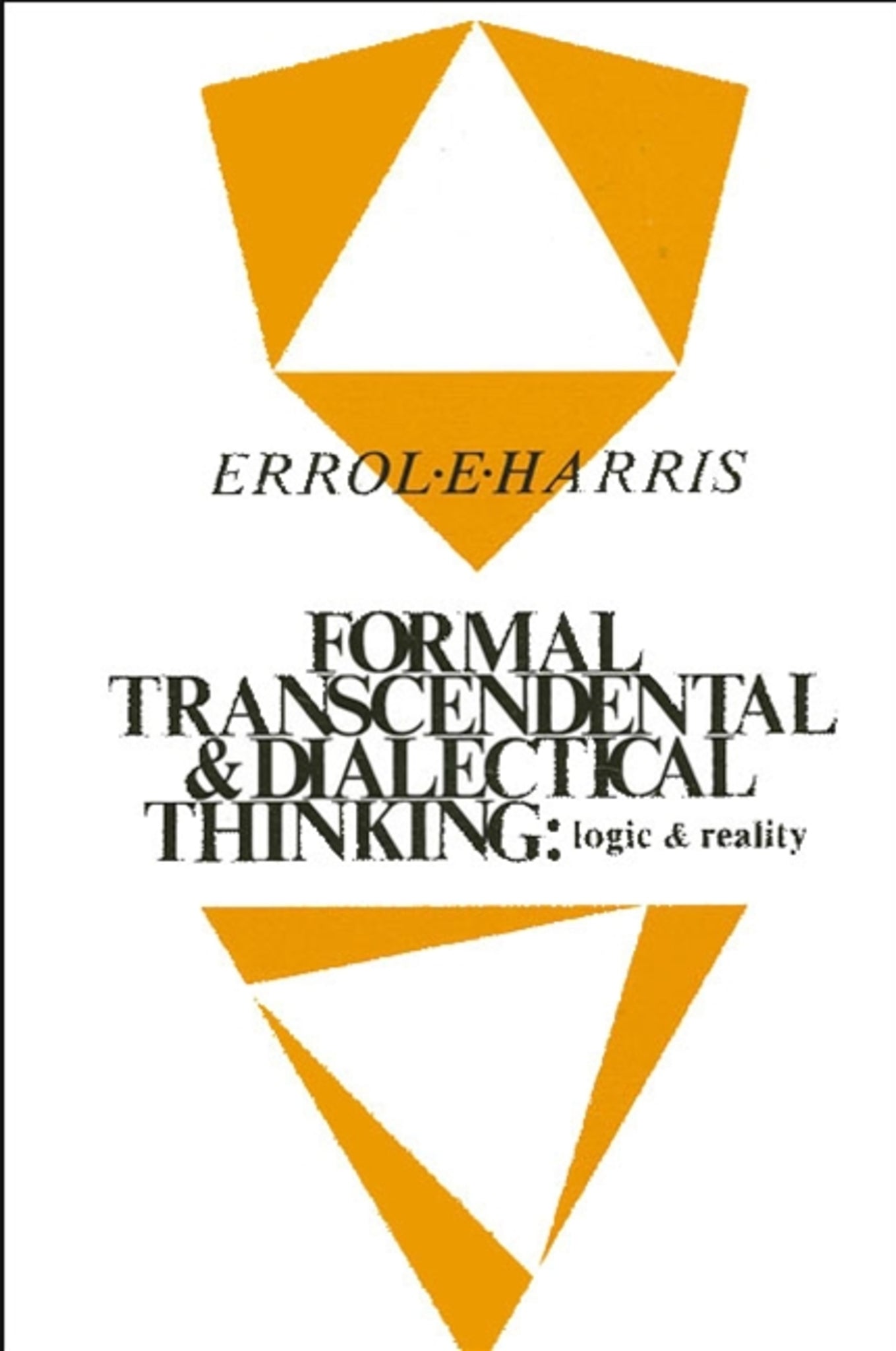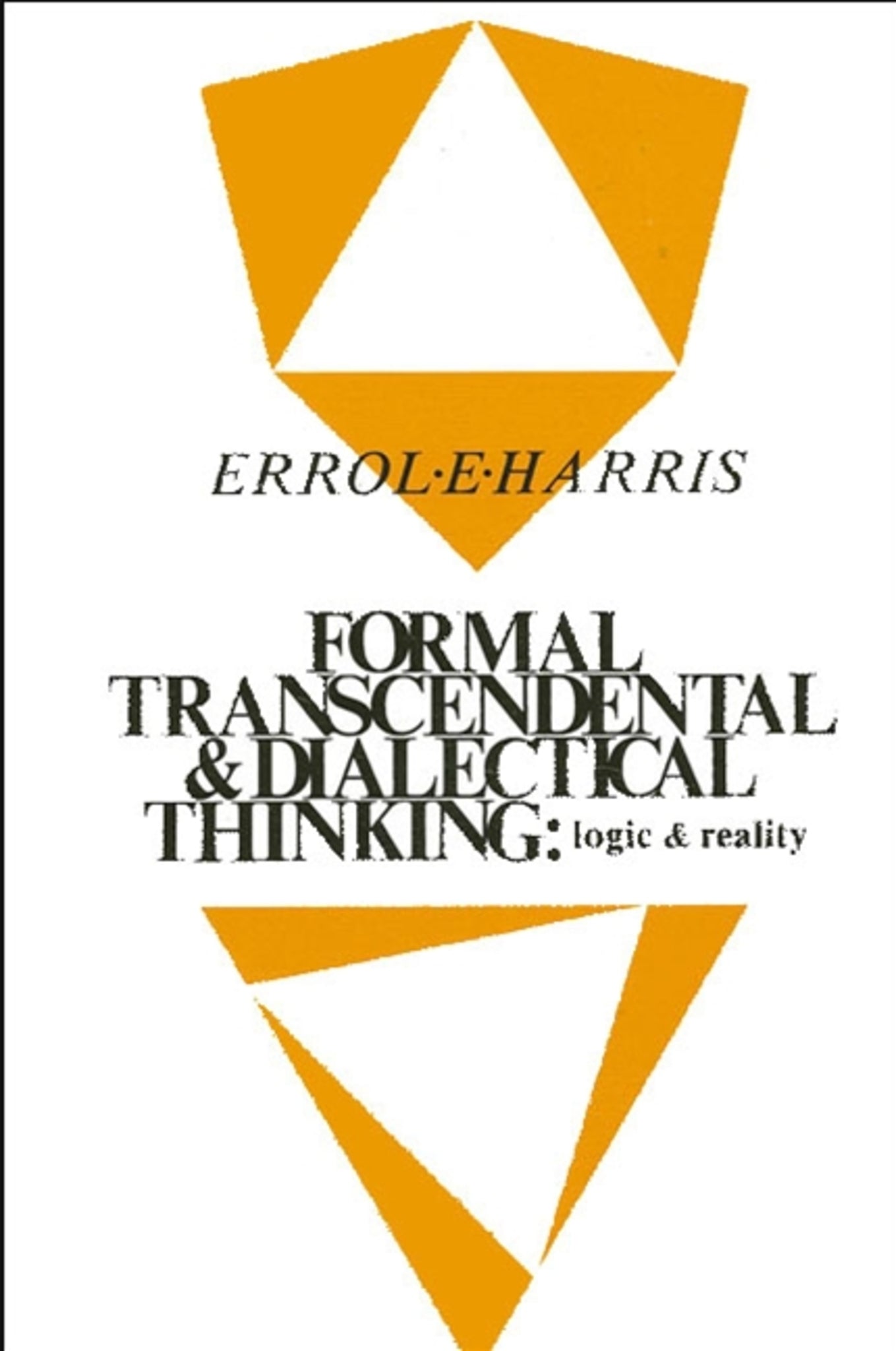We're sorry. An error has occurred
Please cancel or retry.
Formal, Transcendental, and Dialectical Thinking

Some error occured while loading the Quick View. Please close the Quick View and try reloading the page.
Couldn't load pickup availability
- Format:
-
01 July 1987

This is a critical examination of the three types of logic advocated by current philosophical schools. Harris shows that certain basic presuppositions underlying the techniques of symbolic logic have resulted in intellectual stultification, moral dilemma, and practical sterility. These presuppositions are shown to be at variance with those of contemporary scientific method. Critical consideration is given to alternatives, and a more appropriate logic of science is proposed, providing an escape from crippling relativism and promising objective validation of value judgments. This approach offers some prospect of solutions to the major problems now troubling our civilization.


"Harris has written two or three really distinguished, perhaps great, books up to now; this is his best." — James M. Edie
"Like Hegel's, Harris' reading is evolutionary, though Harris has the advantage, and takes it, of the latest science." — Robert Cummings Neville
Preface
Introduction: Contemporary Problems
Is Logic Relevant?
The Predicament of Modern Man
Science as Objective Knowledge
Bankruptcy of "the Scientific Outlook"
The Whirligig of Time
Part I Formal Logic
Chapter 1 The Presuppositions of Formal Logic
Logic and Metaphysics
Frege's Grundlagen der Arithmatik
The Thesis of this Chapter
Commutation, Association and Distribution
Implication
Chapter 2 Formal Logic and Scientific Method
Empiricism and Induction
Physics and "the Interrelatedness of Things"
The Methodology of Science
Perception
Part II Transcendental Logic
Chapter 3 Kant and Fichte
Synthesis and Transcendental Subjectivity
Coherence
The Emergence of Dialectic
Chapter 4 Husserl's Transcendental Logic
Psychologism vs. Formalism
Inadequacies of Formal Logic
The Task of Transcendental Logic
Undeveloped Implications
Chapter 5 Dialectical Transcendentalism
A Reformulation of Transcendental Philosophy
Dialectical Parallel
Chapter 6 Transcendental Idealism
The Problem of Self-constitution
Merits and Demerits of Transcendentalism
Chapter 7 "Independent" and "Nonindependent" Objects
Wholes and Parts
Unresolved Problems
Part III Dialectic
Chapter 8 The Logic of System
Relations, External and Internal
Overlap of Terms
Organization and System
The Self-differentiation of System
Summary and Exemplification
Chapter 9 Negation and the Laws of Thought
Identity and Difference
Dialectic and the Law of Contradiction
Criticisms and Misconceptions
Chapter 10 Categories of Perception
The Form of the Facts
Being and Becoming
Quantity, Number, and Formal Logic
Chapter 11 Categories of Reflection
Common Sense
Common Sense and Newtonian Science
Contemporary Science
Chapter 12 Categories of Systematic Thinking
The Concept, Theoretical and Objective
Conceptual Moments
Scientific Judgement
Scientific Inference
(1) DeductionScientific Advance
(2) Induction
Chapter 13 Objectivity
Three World Views
Relation of Subjective to Objective
Theory and Practice
Identity of Subjectivity and Objectivity
Chapter 14 Value
Dialectical Generation of Value
Desire, Purpose, and Objective Standards
Dialectic and World Problems
Man and Nature
Residual Questions
(1) The freedom and individuality of man
(2) The ultimate character of the universal whole
(3) Man's relation to universal nature



